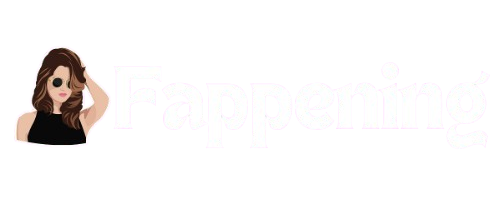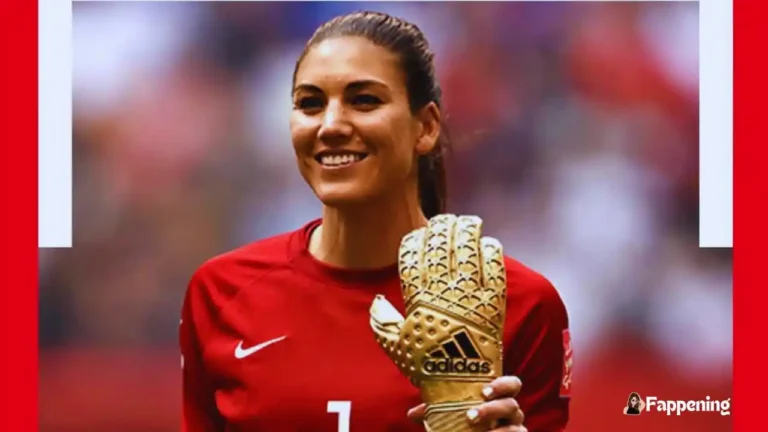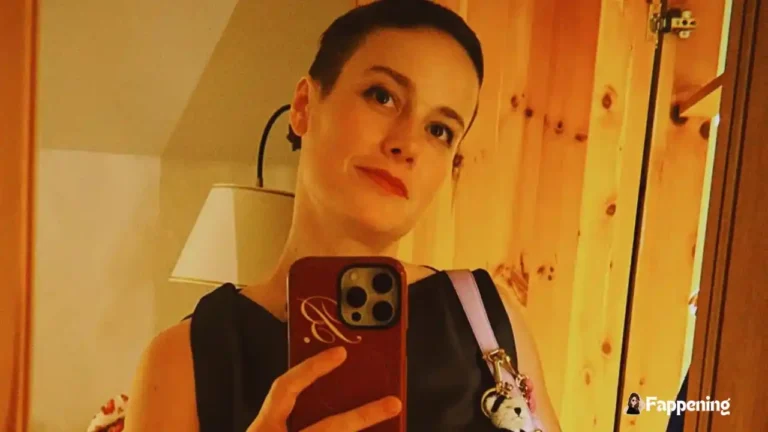Jennifer Lawrence Fappening Timeline Everything You Need to Know
The digital age has brought remarkable convenience but also significant challenges, particularly in safeguarding personal privacy. One such stark reminder of this was “The Fappening,” a term coined for the massive leak of private celebrity photos in 2014. This breach of trust and security shook the entertainment world and sparked widespread discussions about digital privacy and ethical behavior online.
At the heart of this controversy was Jennifer Lawrence, an Academy Award-winning actress known for her roles in The Hunger Games and Silver Linings Playbook. Despite her professional achievements, this incident thrust her into the limelight for reasons beyond her control. Jennifer Lawrence became one of the most searched names linked to this breach, as private and intimate photos of her were unlawfully obtained and distributed online.

The incident continues to draw attention not just because of its scale but also because it raises critical questions about cybersecurity, public consumption of private content, and the boundaries of online ethics. Understanding the timeline of events surrounding Jennifer Lawrence’s involvement in “The Fappening” sheds light on the broader implications of the event and its impact on both individuals and society.
Read about: Barstool Fappening
Background of The Fappening
What is “The Fappening”?
“The Fappening” refers to the unprecedented leak of private and explicit photos of celebrities that occurred in 2014. The term combines “fap,” a slang term for certain private activities, and “happening,” indicating the large-scale and sensational nature of the incident. Hackers exploited vulnerabilities in iCloud, a cloud-based storage service, to access private photos of celebrities and distribute them on platforms such as Reddit and 4chan.

How It Originated and Became Infamous
The incident originated when malicious actors discovered security flaws in Apple’s iCloud system, allowing them to bypass authentication and download personal files stored on the service. The leaked material was uploaded in batches on public forums, creating a firestorm of online activity. Social media platforms and news outlets rapidly spread the story, fueling public curiosity and scrutiny.
The leak’s notoriety was amplified by the high-profile nature of the victims, which included A-list celebrities. Jennifer Lawrence became one of the most prominent names associated with the scandal due to the sheer volume of content leaked and her candid and strong response to the invasion of her privacy.
Key Events Leading Up to the Leaks
- Early 2014: Hackers began exploiting weaknesses in cloud storage systems.
- August 31, 2014: The first wave of leaks was posted on forums such as 4chan and Reddit. The term “The Fappening” was coined shortly thereafter.
- September 2014: The scandal gained international attention as more celebrities came forward, confirming their private images had been stolen.
- Jennifer Lawrence’s Involvement: Lawrence’s photos were among the most widely circulated, leading to intense public and media focus on her.
Other Affected Celebrities
While Jennifer Lawrence became the face of “The Fappening,” numerous other high-profile celebrities were targeted, including:
- Kate Upton
- Kirsten Dunst
- Ariana Grande
- Kaley Cuoco These individuals, like Lawrence, faced a violation of their privacy, prompting broader discussions about victim-blaming and the role of digital security.
Jennifer Lawrence’s Role in The Fappening

Timeline of When Jennifer Lawrence’s Images Were Leaked
Jennifer Lawrence became one of the most prominent figures associated with “The Fappening” when her private images surfaced online on August 31, 2014, during the initial wave of leaks. Her photos, along with those of several other celebrities, were uploaded to platforms such as 4chan and later circulated across Reddit under forums like “The Fappening.”
This marked the beginning of a months-long scandal, as hackers released additional content in subsequent waves. Jennifer Lawrence was disproportionately affected due to the volume of images and her status as an A-list actress, making her one of the most targeted and searched individuals related to the incident.
Specifics About the Leak (What Happened and How It Happened)
The leak resulted from a breach of Apple’s iCloud storage system. Hackers exploited a vulnerability known as a “brute force attack,” wherein multiple password combinations were repeatedly attempted until the correct one was identified. This allowed them to access the personal accounts of celebrities and download private photos and videos stored in the cloud.
Jennifer Lawrence’s images were unlawfully obtained in this manner and subsequently shared without her consent. These images included private, intimate moments intended solely for her personal use, making the leak an egregious violation of her privacy.
The hackers not only violated privacy but also capitalized on public curiosity, releasing the images in batches to maintain attention and maximize the impact of the scandal. This added to the distress of the victims, as the leaks became a drawn-out, intrusive event rather than a single breach.
Role of Cloud Storage Breaches and Digital Security Loopholes
The Jennifer Lawrence incident highlighted several critical weaknesses in digital security:
- iCloud Vulnerabilities:
- Hackers exploited Apple’s security flaws to bypass authentication systems.
- The Find My iPhone feature was reportedly vulnerable to brute force attacks, as it did not lock accounts after multiple incorrect password attempts.
- Weak Password Practices:
- Many accounts were protected by passwords that were not sufficiently complex, making them easier to crack.
- Cybersecurity experts later emphasized the importance of strong, unique passwords and two-factor authentication.
- Inadequate Public Awareness:
- At the time, many users, including celebrities, underestimated the risks of cloud storage and were unaware of how to secure their accounts effectively.
- The incident led to increased scrutiny of cloud services and highlighted the need for user education on digital privacy.
- Systemic Exploitation:
- Hackers coordinated efforts to target high-profile individuals, demonstrating how a combination of technical flaws and poor security practices could lead to large-scale breaches.
Jennifer Lawrence herself later condemned the leak as a “sex crime” rather than a mere invasion of privacy, emphasizing the severity of the incident and calling for stricter penalties for such actions. Her strong response helped shift the narrative from sensationalism to a focus on the ethical and legal implications of such breaches.
Detailed Timeline of Events
2014 Leak: Initial Leaks and Media Reaction
- August 31, 2014: The first wave of leaked images, including Jennifer Lawrence’s, was posted on 4chan, quickly spreading to platforms like Reddit under threads labeled “The Fappening.”
- Media outlets reported the leaks almost immediately, creating a global frenzy around the stolen content.
- Some individuals downloaded and shared the images, while others condemned the act as a gross violation of privacy.
- Early September 2014: Major news organizations, including CNN and BBC, began covering the scandal. This shifted the discussion from tabloid sensationalism to broader debates about cybersecurity and digital privacy.
- Apple released a statement denying a systemic breach in iCloud but admitted that individual accounts had been compromised through phishing and weak security measures.
Subsequent Developments: Ongoing Leaks Involving Jennifer Lawrence
- September 2014: Additional waves of leaks occurred, targeting Jennifer Lawrence and other celebrities. Hackers released new batches of private images, keeping the scandal alive in the public eye.
- The constant stream of leaks increased pressure on social media platforms like Reddit to take down the images. Some subreddits hosting the content were eventually banned.
- October to December 2014: Investigations by the FBI gained traction, with authorities identifying and tracking down individuals involved in orchestrating the hack.
- Public interest remained high, with searches for “Jennifer Lawrence Fappening” and related terms spiking significantly.
- 2015 and Beyond: While the primary scandal waned, occasional references to “The Fappening” and Jennifer Lawrence resurfaced online. The images continued to circulate on certain platforms, despite efforts to remove them.
Public Statements: Jennifer Lawrence’s Response to the Incident
- October 2014: Jennifer Lawrence broke her silence in an interview with Vanity Fair, calling the incident a “sex crime” and condemning anyone who viewed or distributed the images.
- Key quote: “It is not a scandal. It is a sex crime. It is a sexual violation. It’s disgusting.”
- She criticized the media for perpetuating the spread of the stolen content, emphasizing the emotional toll the leak had taken on her.
- Lawrence used her platform to advocate for stricter laws and greater accountability for digital crimes.
- Subsequent Interviews: In later interviews, she expressed relief at being able to speak out about the incident, framing the conversation around the broader issue of digital privacy and victim-blaming.
Legal Actions Taken by Jennifer Lawrence and Other Affected Celebrities
- FBI Involvement: The Federal Bureau of Investigation launched an extensive probe into the hacks. They traced the breach to a group of hackers who exploited weaknesses in Apple’s iCloud.
- By 2016, hackers including Ryan Collins were arrested and charged. Collins confessed to illegally accessing over 600 accounts and was sentenced to 18 months in prison.
- Civil Lawsuits: Jennifer Lawrence and other victims pursued legal actions to remove the stolen content from websites and secure damages from entities that hosted or distributed the material.
- Some lawsuits targeted tech companies, demanding they do more to protect users’ privacy.
- Stricter Security Measures: Following the incident, Apple implemented stronger security protocols, including two-factor authentication, to prevent similar breaches.
Media and Public Reactions
How the Media Reported the Leaks
The leaks were widely covered by major news outlets, often in conflicting tones. Tabloids sensationalized the event, focusing on the celebrity aspect, while respected publications emphasized the invasion of privacy and ethical concerns.
- Initial Sensationalism:
Outlets like TMZ and gossip blogs quickly jumped on the story, posting headlines that drove clicks but often downplayed the ethical and legal ramifications. The use of terms like “scandal” trivialized the severity of the incident. - Shift in Tone:
As public outcry grew, media coverage from outlets like The New York Times and The Guardian began framing the leaks as a breach of privacy and an ethical violation. Discussions moved from sensationalism to highlighting cybersecurity flaws and victim advocacy. - Jennifer Lawrence’s Role:
Her public condemnation of the leaks reshaped the media narrative. By labeling it a “sex crime,” Lawrence turned attention to the victims rather than the leaked content, influencing how the media covered subsequent events.
Public Reaction and Discussions Online
The leaks caused a polarizing reaction online, with many condemning the act while others perpetuated it by seeking and sharing the images.
- Reddit and 4chan Activity:
Forums like Reddit were central to the dissemination of the leaked images. Subreddits such as r/TheFappening became hubs for sharing and discussing the content. While Reddit eventually banned these subreddits, the delay in action sparked debates about platform accountability. - Public Divides:
- Some users criticized the victims, engaging in victim-blaming narratives.
- Others condemned the hackers and those sharing the content, emphasizing the need for stronger digital protections.
- Long-Term Online Presence:
Despite takedown efforts, the leaked content resurfaced sporadically on various forums and platforms, demonstrating the challenge of erasing such material from the internet.
Jennifer Lawrence’s Interviews Addressing the Issue
Jennifer Lawrence’s public statements were a turning point in shaping how the incident was perceived.
- Vanity Fair Interview (2014):
Lawrence openly condemned the leaks as a crime, refusing to apologize or express shame for the stolen content.- Quote: “Just because I’m a public figure, just because I’m an actress, does not mean that I asked for this.”
- Advocacy for Privacy Rights:
Lawrence used her platform to highlight the need for stricter laws and greater awareness of digital privacy. Her statements inspired other victims to speak out and helped shift the conversation toward holding hackers and platforms accountable.
Ethical and Legal Implications
Discussion on Privacy Violations and Ethical Aspects
The leaks sparked widespread debates about ethics in the digital age.
- Privacy Violations:
The incident underscored how digital storage can be vulnerable to exploitation, with personal content becoming a public spectacle.- Victims were often blamed for storing private images online, ignoring the responsibility of hackers and platforms.
- Ethical Concerns:
- Sharing or consuming the leaked content perpetuated the violation, raising questions about the morality of public participation in such scandals.
- The event highlighted the need for collective accountability, urging users to respect privacy and avoid victim-blaming.
Legal Precedents Set by Lawsuits and Court Rulings
The legal response to “The Fappening” played a pivotal role in establishing consequences for cybercrimes.
- Prosecution of Hackers:
- Several individuals were prosecuted for their roles in the breach. Notable cases include Ryan Collins, sentenced to 18 months in prison for hacking hundreds of accounts, including Jennifer Lawrence’s.
- The cases emphasized that hacking and distribution of private content were not only unethical but also punishable crimes.
- Civil Lawsuits:
Victims, including Jennifer Lawrence, pursued civil action against platforms that failed to remove the stolen content swiftly.- These lawsuits pressured companies to improve their content moderation practices and enhance cybersecurity measures.
- Influence on Future Cases:
The legal actions taken in response to “The Fappening” created precedents for dealing with similar breaches, emphasizing the need for stricter penalties for digital crimes.
Impact on Cybersecurity Awareness and Policies
The leaks highlighted glaring issues in digital security and prompted significant changes in public behavior and institutional policies.
- Strengthened Security Measures:
- Companies like Apple introduced features like two-factor authentication to prevent unauthorized access.
- Public awareness campaigns encouraged individuals to use stronger passwords and avoid storing sensitive content online.
- Cultural Shift in Privacy Awareness:
- The event catalyzed discussions about the risks of cloud storage and the need for vigilance in protecting personal data.
- It also highlighted the importance of holding hackers and enablers accountable, fostering a culture of digital responsibility.
Lessons Learned
The Jennifer Lawrence Fappening incident serves as a critical case study for understanding the importance of digital security, public awareness, and ethical behavior in online spaces. Here are the key takeaways:
Importance of Digital Security and Protecting Personal Data
The leaks underscored the vulnerability of personal data in the digital age and the need for robust security practices.
- Strengthening Account Security:
- The incident highlighted the necessity of using strong, unique passwords and multi-factor authentication to secure accounts.
- Cloud services must continually enhance encryption methods and protection against brute-force attacks.
- Reevaluating Cloud Storage:
- Individuals should carefully consider what data they store on cloud platforms and explore encrypted local storage as an alternative.
- Cloud providers must educate users on how to secure their data effectively.
- Learning from Security Failures:
- Apple’s initial vulnerabilities prompted a broader reassessment of digital security protocols across tech companies.
- Continuous software updates and patches are vital to preempt emerging cyber threats.
The Role of Public Awareness in Combating Cybercrimes
Public understanding and engagement are essential in preventing and responding to cybercrimes like the Fappening.
- Raising Awareness:
- Campaigns about digital security have gained traction since the incident, educating users on how to protect their data.
- Advocacy by victims, such as Jennifer Lawrence, has helped spotlight the emotional and legal repercussions of breaches.
- Empowering Victims:
- By openly addressing the violation, victims like Jennifer Lawrence have encouraged others to stand against cybercrimes.
- Legal outcomes and prosecutions serve as a deterrent, emphasizing that such crimes have consequences.
- Media Responsibility:
- The role of media in shaping public narratives is crucial. Ethical reporting that avoids sensationalism helps foster empathy and encourages proactive behavior.
Encouragement for Ethical Behavior in Online Spaces
The incident raised pressing questions about the ethics of consuming and sharing illicitly obtained content.
- Respecting Privacy:
- Public participation in sharing or viewing leaked content perpetuates the harm inflicted on victims. The event highlighted the need for greater respect for privacy in digital interactions.
- Advocating for Digital Ethics:
- Schools, organizations, and platforms must promote ethical behavior online, including discouraging voyeurism and victim-blaming.
- Community guidelines on platforms like Reddit and other forums must be enforced to prevent the spread of harmful content.
- Holding Platforms Accountable:
- The delay in taking down leaked content sparked debates about the responsibilities of social media and tech platforms.
- Users and lawmakers must demand stricter regulations to ensure platforms are proactive in preventing and mitigating harm.
Conclusion
The Jennifer Lawrence Fappening case is a sobering reminder of the consequences of inadequate digital security, unchecked curiosity, and unethical online behavior. By prioritizing robust security measures, fostering public awareness, and encouraging ethical conduct, society can better navigate the challenges of the digital age. These lessons pave the way for a safer and more respectful online environment.







